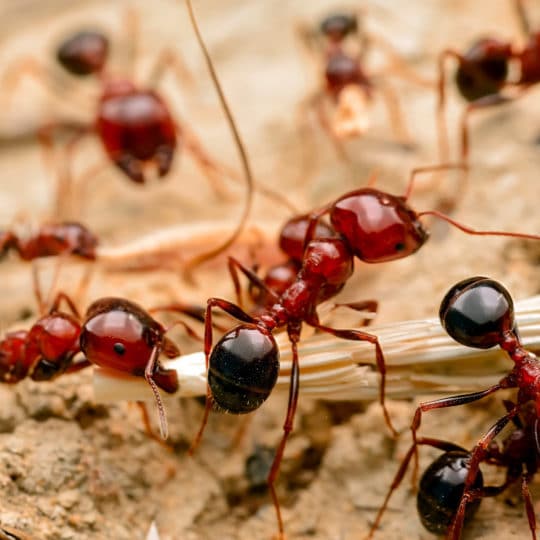Pest Control, Health, and the Many Ways Pests Can Be Harmful

Most of the time, we talk about pest control as a way to prevent the inconvenience of pests. After all, when we have pests on our property, it is – for lack of a better word – “gross.” We don’t want to see millipedes or spiders or ants or cockroaches, because they’re gross, and because they make us uncomfortable.
Some of them also bite, which can be painful. Some, like termites, cause property damage. We’re typically aware of all of these things. But what you may not be aware of is that pests, in a general sense, are also potential bringers of disease and illness. As we look for ways to improve our health, we have to also make sure that we’re acknowledging the way that pests can affect it.
How Can Pests Affect Health
Some people are allergic to pests, so much so that they can have very dangerous – or at least uncomfortable – allergic reactions when faced with a bite or sting. Someone allergic to bee stings, for example, may have a medical emergency if a bee or wasp ends up on their property.
Some pests are also highly toxic. Black widow spiders, of course, are the most well known example, but we also have brown recluse spiders here, which can also pose risks.
But even beyond that, pests are just generally bad for your health. Consider some examples:
- Flies – Flies themselves are mostly harmless. It’s what they touch that is a problem. Flies eat moldy food, feces, and much more. What they touch can end up on their bodies, and then spread to your food or property. Even though getting ill from a fly is not terribly common, the risks are there, and unfortunately there is never a way to know whether or not the flies in your home are carrying harmful pathogens.
- Roaches – Similarly, cockroaches can lead to a host of issues even if you are not that allergic. They spread oils, hairs, skin, and germs all over the home. They can trigger asthma attacks in those prone to asthma, and create allergic reactions even for those that are not generally allergic.
- Mosquitoes – Mosquitoes, of course, are vectors of disease. We’re familiar with how easily they can spread very dangerous viruses like West Nile and Zika. Scientists do not believe that they can spread more common diseases like the common cold or influenza, but the truth is we do not know for sure. While most mosquitoes will be harmless, one thing we do know is that the fewer bites you get, the healthier you will be.
- Ants – Ants themselves are not vectors for disease, but like flies, they can get pathogens – especially bacteria – on their bodies. Once they’re on their bodies, they can spread it everywhere. Some ants are believed to spread salmonella, for example, making it important not to get them in your kitchen.
- Rats/Rodents – Similarly, rats and rodents can carry a host of diseases. They can carry hantavirus, leptospirosis, salmonella, even the plague, and you do not need to get bitten by a rat to be at risk for some type of illness.
These are only examples, of course, but they highlight some of the many risk that you face if you do not prioritize professional pest control. At ExtermPRO in Gainesville, VA, we make sure to help you eliminate and prevent pests so that your family is not at risk.
For more information, or to get started, please reach out to ExtermPRO, today.